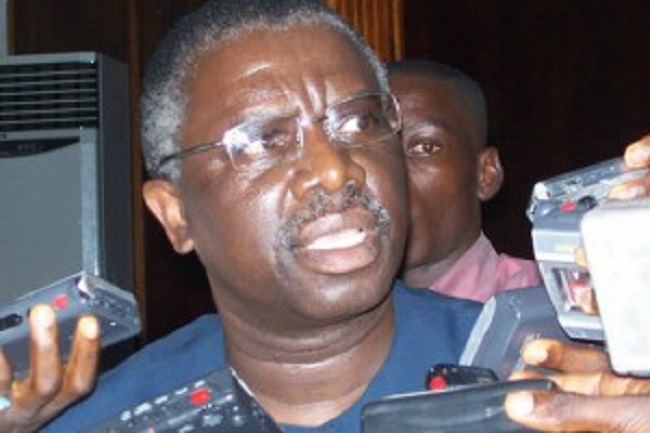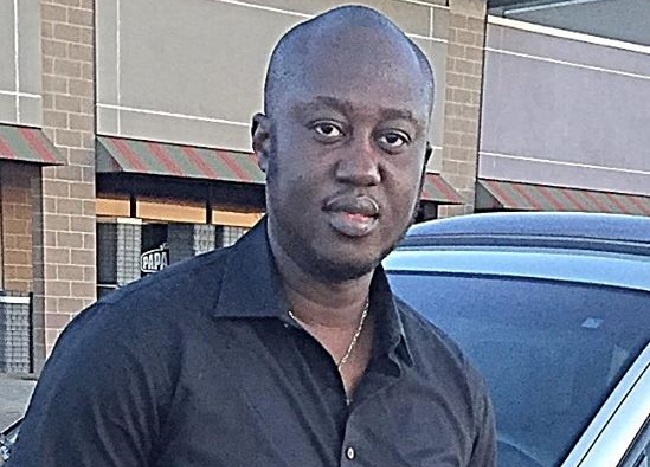Liberia: Was Harry Greaves murdered?

The late Harry Greaves served as managing director of the Liberia Petroleum Refining Company
Photo. liberianlistener.com
As the United Nation mission draws down in Liberia, the safety and security of individual citizens should be a cause of grave concern to law enforcement authorities. Over the last eight years, several eminent individuals in Liberia have either been murdered, or died under unusual circumstances. Given the sparse occurrences of these tragic incidences, most of the high-profile deaths in Liberia have gone unnoticed. Interestingly, these rare tragic passings occurred under the leadership of Africa’s first female president, Ellen Johnson Sirleaf, writes Hassan Fadiga.
The latest high-profile death of the former managing director of the Liberia Petroleum Refining Company (LPRC), Henry Greaves, shocked the consciousness of the nation. According to the Front Page Africa news, at about 6:30am, on January 31,2016, the body of Mr. Greaves was discovered by a young man named Jardah Tatee along the beach. The Front Page Africa media further noted that Jardah, 21, and his friends dragged Mr. Greaves’ body from near the Atlantic Ocean to prevent the corpse from drifting away into the sea.
Contamination of primary crime scene
The removal of Mr. Greaves’ body from near the sea may have contaminated the crime scene, and the responding investigator(s) might have missed crucial evidence. During an investigation into water death, it is extremely important for investigators to conduct an on-scene assessment of the body. The on-scene body assessment allows investigators to record observations made during the assessment, and correctly document injuries. The documentation of the appearance and location of Mr. Greaves’ injuries is significant. An accurate notation of the victim’s body will help the pathologist in establishing the time frame in which his body sustained the wounds. Additionally, the positioning of some injuries on the victim’s head may well point to the time when the injuries happened.
When a person drowns, their body often takes a position where the head, arms, and legs are face down in the water. Therefore, prior to removing Mr. Greaves’ body from near the ocean, it was essential for responding investigators to document the positioning of the injuries and body itself. The evidence collected by investigators from the assessment of the deceased body might have greatly helped the pathologist to piece together the exact cause of death. Unfortunately, with the removal of Mr. Greaves’ body, and the apparent sloppy investigation conducted by the Liberia National Police, vital evidence was tainted.
Examination of Greaves’ body:
Having examined pictures of Mr. Greaves’ body, the following notation of wounding was documented. I observed a pinkish foam projecting from Mr. Greaves’ mouth and nose. The foam appeared to be a combination of water, air, surfactant, and blood situated within the lungs. There were discolorations and fresh scars on the top of the former managing director’s head, face, lower right breast, chest, including both knees, and arms. These injuries were consistent with travel abrasions, or another post-mortem injury stemming from the body coming into contact with objects in the water.
The examination of the decease’s photo also showed a stiffening of his limbs, joints, and the swelling of his scrotum. The swollen scrotum is an indication that the victim’s body was already in a stage of decomposition. Additionally, the stiffening of Henry Greaves’ limbs and joints were indicative of signs of drowning. It is worth noting that the examination of the victim’s pictures may not provide an accurate account of the cause of his death. An on-scene assessment of Greaves’ body is the most appropriate assessment method, and it should have been conducted before the removal of the body from its original position.
While the eyelids, lips, nose tip, and forehead of the victim seemed to be caused by a physical assault, there is no evidence to suggest that Mr. Greaves was physically battered. Some of the wounds seemed to be produced by ruptured blood vessels within the eye, which is mainly cause by increased pressure in the carotid artery, or contact with objects in the water.
The circumstances surrounding the untimely death of Mr. Greaves might be due to a combination of factors. Although a pathologist might determine that the victim died from drowning, it may be difficult to establish whether his death was the result of a homicidal, suicidal, or accidental drowning. Notwithstanding, retracing Greaves’ last known contacts during his visit to the RLJ hotel, and searching his call-log might yield some results.

Mr. Fadiga, the writer of this forensic look at the body of Greaves, is a law enforcement professional, MA. Forensic Psychology and Human Services, Bsc. Police Science and Security Management, AS. Criminal Justice and Law Enforcement
Other high-profile deaths
Other high-profile murders that have gone unsolved under the Sirleaf-led government include the brutal killing of Mr. Keith Jubah, head of the Public Procurement and Concession Commission (PPCC) and Mr. Fayaih J. Saah Gbollie, former presidential candidate. Mr. Keith Jubah was gunned down and his body set ablaze on November 2, 2009, in the Morris Farm community. Mr. Jubah’s job as head of a sensitive position might have caused him his life. Sadly, no one was arrested and prosecuted for his death, and the case went cold.
On the other hand, the former presidential candidate, Fayiah J. Saah Gbollie, was brutally murdered in broad daylight at his Congo-Town residence and his vehicle stolen. According to relatives of Mr. Gbollie, he was apparently killed few hours after he dropped his two kids to school. The Liberia National Police (LNP) once again was unable to find his killer(s).
The recent deaths of Mr. Harry A. Greaves, former managing director of the Liberia Petroleum Refining Company (LPRC) and attorney Michael Allison, a whistleblower, bear a striking resemblance. Both individuals died under mysterious circumstances, when they revealed sensitive information about corruption at the National Oil Company of Liberia (NOCAL). Meanwhile, the failure of the police leadership to properly investigate these barbaric acts of violence, and bring the perpetrators to justice is very disturbing. We call on President Sirleaf to show sound leadership by firing the head of Liberia National Police due to gross incompetence.

